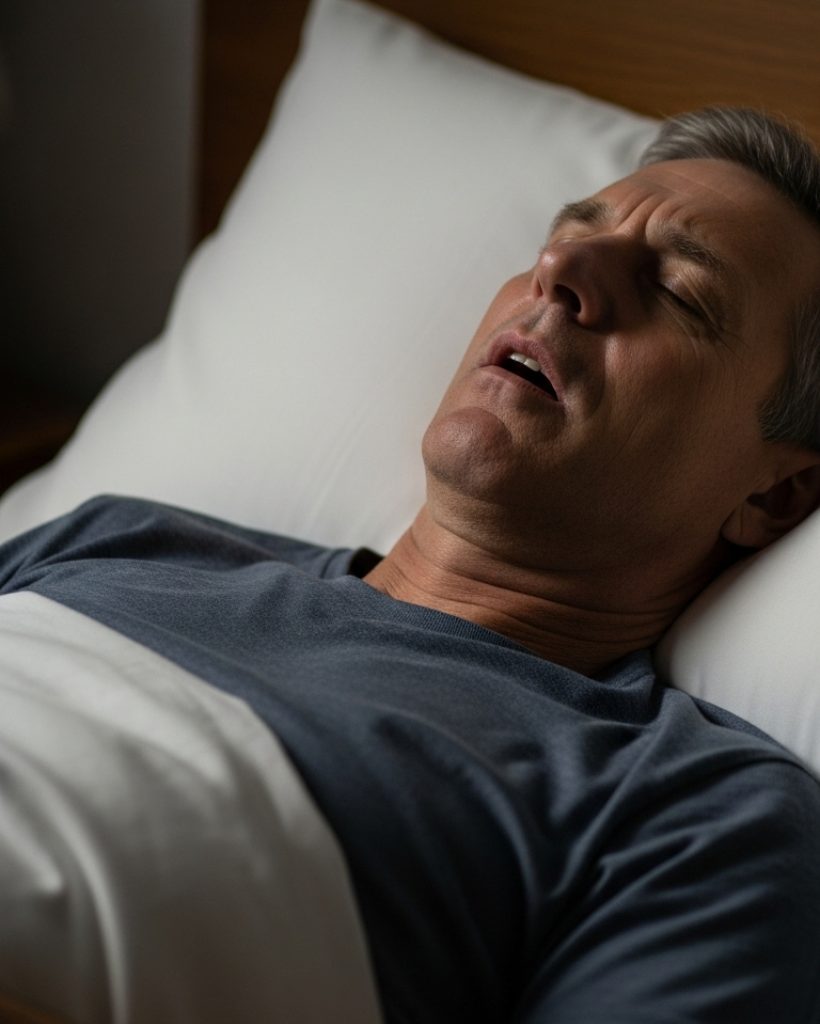Obstructive sleep apnea (OSA) affects at least 25 million adults in the U.S. It is caused by the collapse of the airway in the back of the nose, mouth and throat during sleep.
Key Points:
Sleep apnea is a chronic disease that can cause poor quality sleep and affect mental, physical and sexual performance. Severe, untreated sleep apnea increases your risk for health problems such as heart disease and stroke. Excess body weight, a narrow airway, low muscle tone, and genetic predisposition are all risk factors for sleep apnea. Common warning signs for sleep apnea include snoring, others noticing that your breathing pauses during sleep, and daytime sleepiness. Sleep apnea can be treated effectively with CPAP therapy or an alternative treatment.
Am I At Risk?
Excess body weight is the leading risk factor for obstructive sleep apnea, but thin people can have sleep apnea too. The risk also increases if you have a large neck, tongue, tonsils or jaw. Sleep apnea is more common in men than in women, but the risk for women increases during and after menopause. Sleep apnea is common in people who have high blood pressure. It also occurs frequently in people who have heart disease, stroke, a mood disorder or Type 2 diabetes.

Call us now to schedule your appointment. Our expert team is here to help you achieve restful, restorative sleep and improve your overall health. Don’t wait—take the first step towards better sleep today
When your airway collapses during sleep, it blocks airflow to the lungs, causing brief awakenings and poor sleep quality. This can happen hundreds of times a night, often without your awareness. Symptoms include loud snoring and repeated breathing pauses. Untreated obstructive sleep apnea (OSA) can lead to daytime sleepiness, mood changes, and increased risks of obesity, high blood pressure, heart disease, stroke, Type 2 diabetes, erectile dysfunction, and depression.
The most common treatment for obstructive sleep apnea is continuous positive airway pressure therapy (CPAP). CPAP therapy provides airflow through a mask worn at night. This airflow increases the air pressure in your airway to keep it open, and restores normal breathing. Alternative treatments for sleep apnea include:
These tips can help reduce the severity of obstructive sleep apnea:


Facility Member
Since 1977, the American Academy of Sleep Medicine (AASM) Standards for Accreditation have been the gold standard by which the medical community and the public evaluate sleep medicine facilities. Achieving AASM accreditation demonstrates a sleep medicine provider’s commitment to high quality, patient-centered care through adherence to these standards.
El Paso Sleep Center by Bedrock Digital 2025